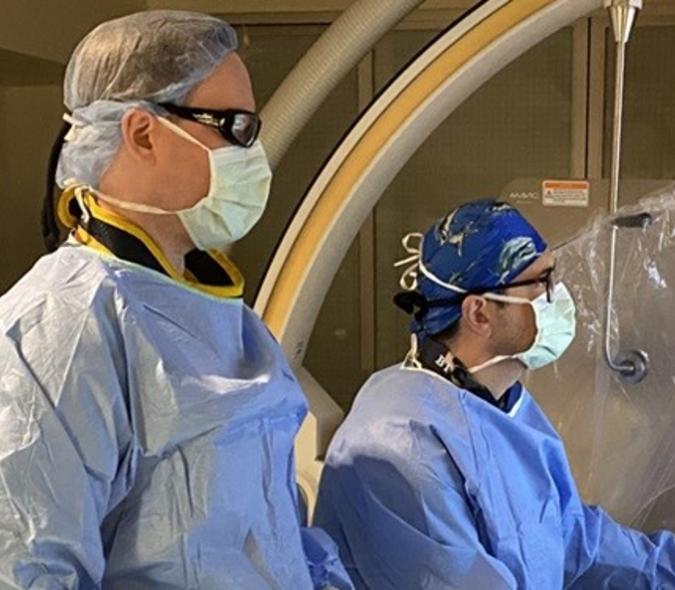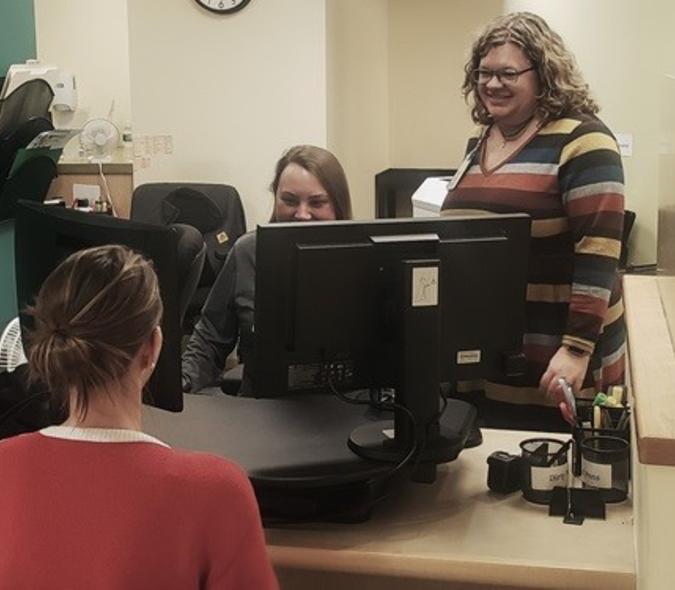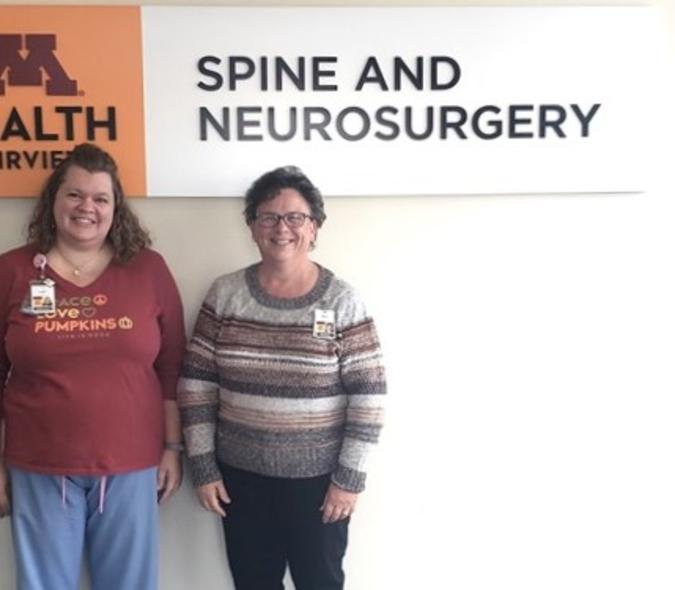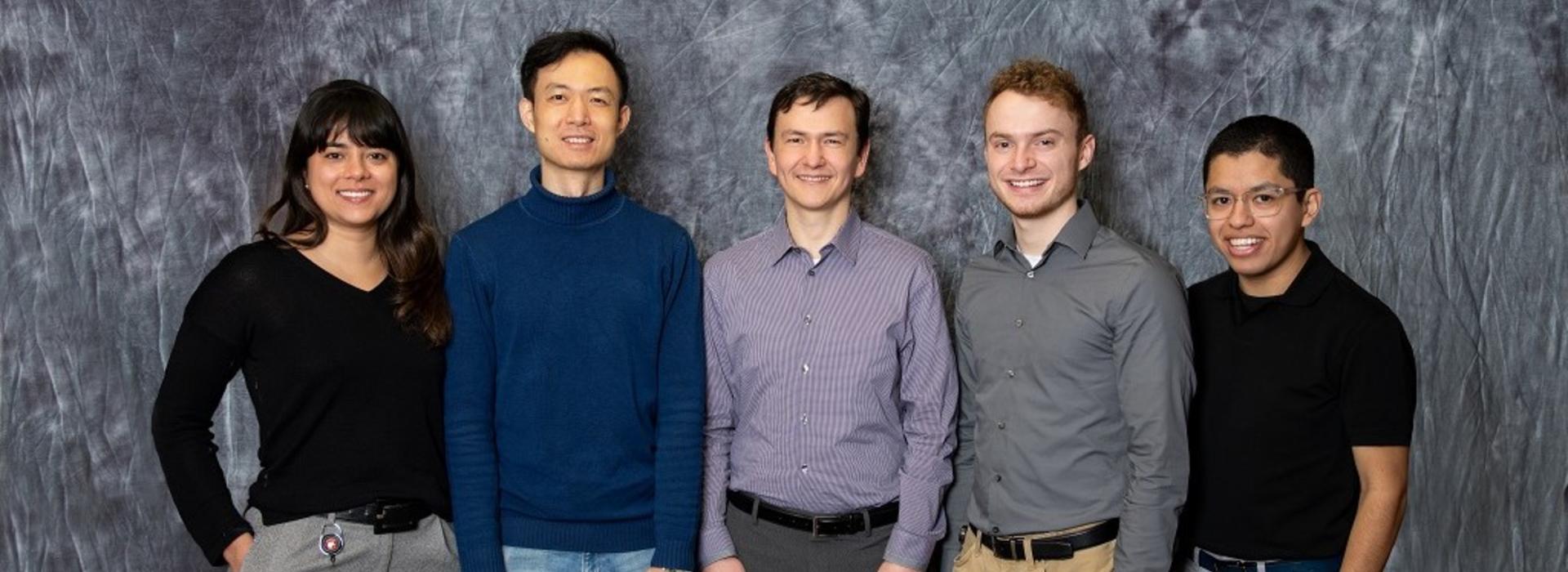
Discovering your mentees' goals benefits everyone involved, notes department mentor
For Assistant Professor Andrew Venteicher, MD, PhD (pictured above center with his lab team), mentoring is a team sport. In addition to working with residents, fellows, graduate students, and post docs, he also mentors clinic nursing staff and Advanced Practice Providers (APPs) such as nurse practitioners and physician assistants.
As he guides people through their careers, Venteicher likes to know what their goals are. For example, some of his mentees focus on taking care of patients and want to spend a lot of time with them. “Others want to learn about neurosurgery fundamentals or different subspecialties,” said Venteicher. “As mentors, we try to match their experience with their strengths and goals.”
Mutually beneficial
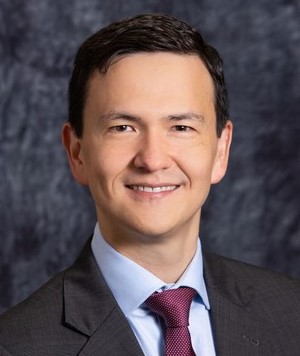
Venteicher (pictured here) believes it’s mutually beneficial to discover the clinical team’s goals. “For example, if an APP wants to learn more about neuroanatomy, that benefits the program and our patients,” he said. “If a team member wants to be more involved in leadership, finding ways to do that could lead to building something new in the department.”
Department Head Clark C. Chen, MD, PhD, has set up the department to have certain faculty members and APPs play leadership roles in different aspects of care, according to Venteicher. “In that context, they have to learn management skills, and engage in leading a team,” he said. “In addition, the department culture is one in which everyone gets along well and feels free to ask one another’s opinions about anything that we’re doing.” Venteicher believes that creates “lateral mentorships,” in which your colleagues help guide you. “The freedom to engage your colleagues without feeling like you’re going to be put down speaks to the ability to equip mentors to be successful,” he said.
Sense of belonging
As he watches his mentees build a solid knowledge base, as well as grow their sense of camaraderie in the clinic, Venteicher noted that, “I can tell that they feel a sense of belonging, not only with the patients but with the department and in the care settings. I really enjoy seeing residents, nurses, and APPs reach a point where they’re taking care of patients and solving clinical problems independently.”
Venteicher schedules time with those he works with in the outpatient setting regularly. “It helps us address things that we might not have time to during our busy days,” he said. Preparing for these meetings requires all parties to reflect on what’s worked and what hasn’t, noted Venteicher. “I also enjoy having Wednesday morning clinic with our nurses and APPs,” he said. “The mutual respect we have for one another enables us to address potentially challenging issues such as how to make things better or improve a patient’s care.”
Navigating pitfalls
Another important aspect of mentoring for Venteicher is sharing both his successes and failures to help his mentees navigate potential pitfalls. “As I reflect on my own career, I think about the things that I benefited from and what I wish I had done better or differently,” he said. “That’s challenging … we don’t naturally do that, but the mentor/mentee role forces us to.”
When Venteicher thinks about his own mentors, those he values most are the ones who pushed him hard and held him accountable. “There was a feeling of gradual independence, building my knowledge, and feeling like I was taking a more primary role in caring for patients,” he said. “That’s when I learned a lot about clinical management and decision making.”
He brings that experience into working with his own mentees, especially residents and fellows. “I try to push the residents a little bit to understand the reasons for their decisions,” said Venteicher. “Often, it changes my own thinking about how we should take care of a patient. That discussion is very important. It’s a key aspect of what I value about my relationship with the residents.”
